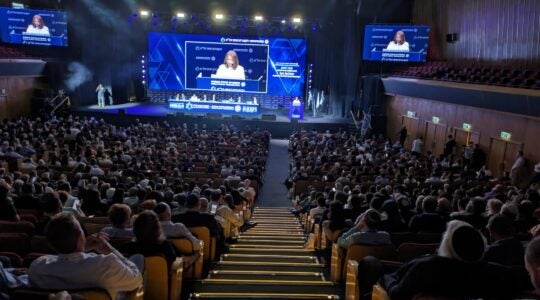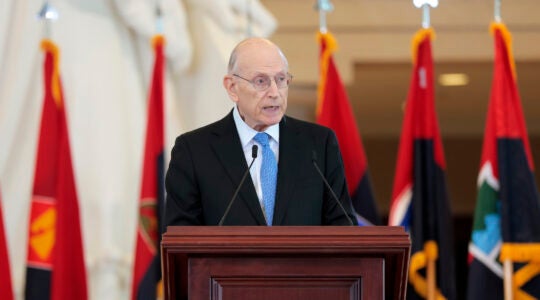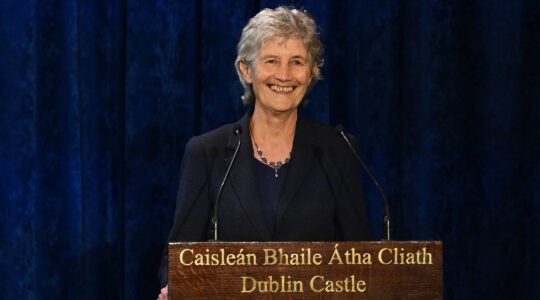LONDON (JTA) — Organizers of Britain’s Inter-parliamentary Coalition for Combating Antisemitism could not have anticipated the urgency when they scheduled the group’s first-ever summit for this month.
Coming just a month after Israel’s war in Gaza prompted a spike in anti-Semitic incidents all over the world, the conference drew experts and public figures from 42 countries who said they faced challenges unmatched by anything they’ve seen for decades.
“Now it is burning, and we have to work hard to put down the fire,” the national director of the Anti-Defamation League, Abraham Foxman, said of anti-Semitic ferment.
Presenters at the conference said the number and scope of anti-Semitic incidents worldwide have risen to levels not seen since the Holocaust. New technologies make the spread of hate across borders easy and quick. And last month’s outbursts of anti-Semitism from London to Caracas show a wellspring of hate against Jews just waiting to be tapped.
In demonstrations in January against Israel’s operation in Gaza, criticism of the Jewish state quickly turned to anti-Semitism, analysts said, with banners comparing Israelis to Nazis and Gaza to the Warsaw Ghetto.
“Anti-Zionism is the new anti-Semitism,” said Michael Gove, a British member of Parliament.
Gove said Islamist groups are uniting with the far left to try to delegitimize Israel and question its right to exist.
“The extreme left is dressing it as anti-colonialism,” he said.
But in truth, Gove said, “the defense of Israel is central in the fight against racism.”
Former Canadian justice minister Irwin Cotler, who is a member of parliament, said the new anti-Semitism attacks the “Jewish collective” by attacking Israel’s right to exist as any other country.
Whereas old anti-Semitism “wished to eliminate individual Jewish people,” Cotler said, “the new anti-Semitism aims at getting rid of the Jewish state.”
“Many of those responsible for this new anti-Semitism are Islamist groups,” said British parliamentarian Denis MacShane.
Like MacShane, the vast majority of legislators who attended the conference were not Jewish.
U.S. Rep. Chris Smith (R-N.J.) told JTA that the way to fight anti-Semitism is by imposing serious penalties for its perpetrators.
Smith said President Obama should not take part in the so-called Durban II conference, a follow-up to the notorious 2001 U.N. anti-racism conference that turned into an Israel-baiting forum. Smith also slammed the United Nations.
“They pay lip service to the issue of anti-Semitism, but don’t really act,” he said.
At British universities, some said, the atmosphere has become uncomfortable for Jewish students as the residue of long battles over academic boycotts of Israel have turned into naked anti-Semitism. British parliamentarian Tim Boswell said he has been in touch with university heads in an attempt to find ways of tackling the problem.
Despite the bleak picture presented at the conference, experts said they were encouraged by the positive response of legislators who signed the declaration committing themselves to continue to work together, along with their respective governments, to halt the rise in anti-Semitism.
Professor Robert Wistrich of the International Centre for the Study of anti-Semitism told JTA that it is unprecedented that so many legislators get together and show that they really want to change anti-Semitic behavior.
Professor Gilbert Kahn of Kean University in New Jersey said he sees a change in the attitudes of legislators and governments that “recognize that they can play a role in the global battle against anti-Semitism.”
JTA has documented Jewish history in real-time for over a century. Keep our journalism strong by joining us in supporting independent, award-winning reporting.





